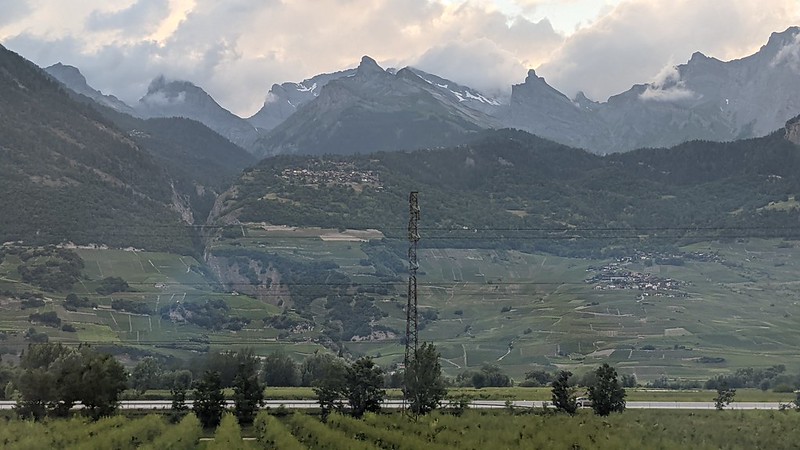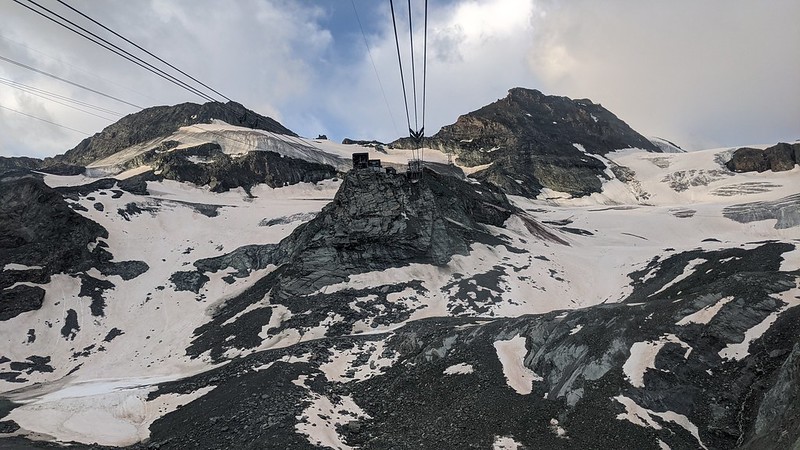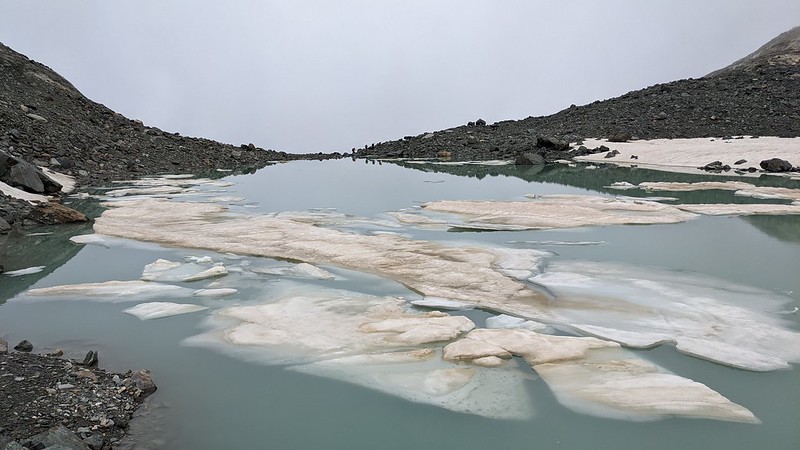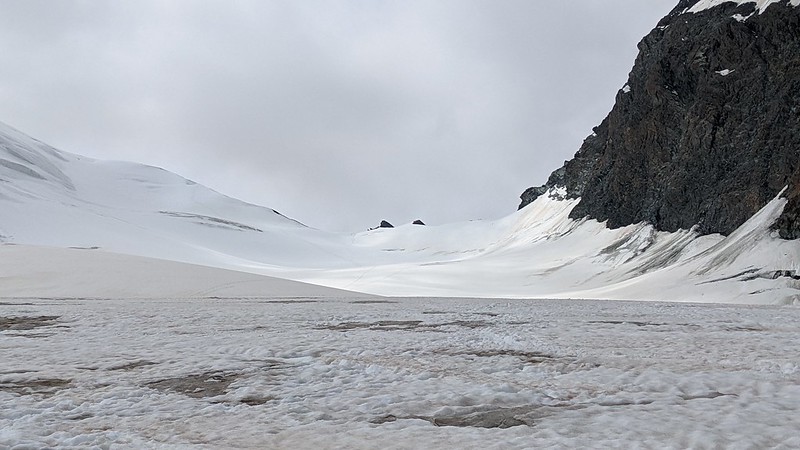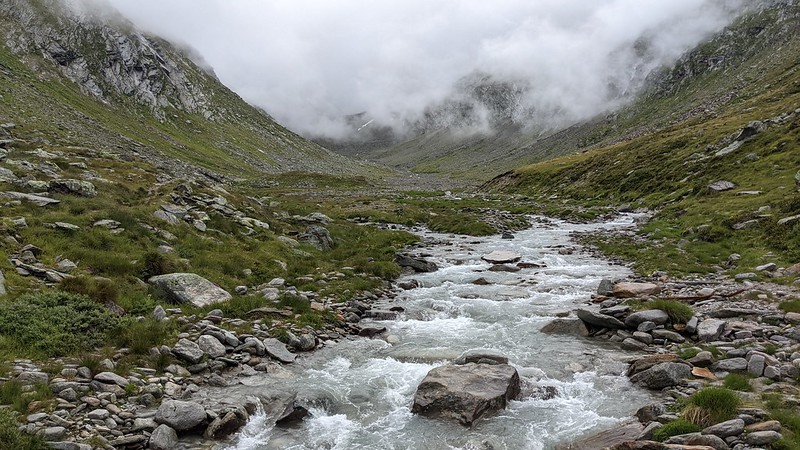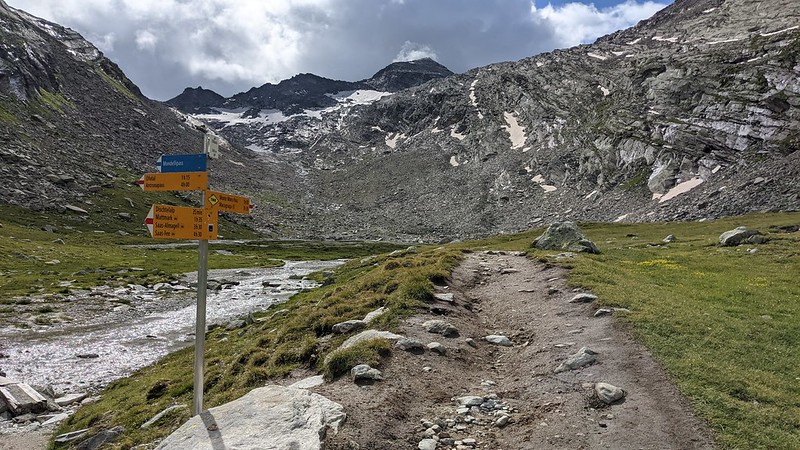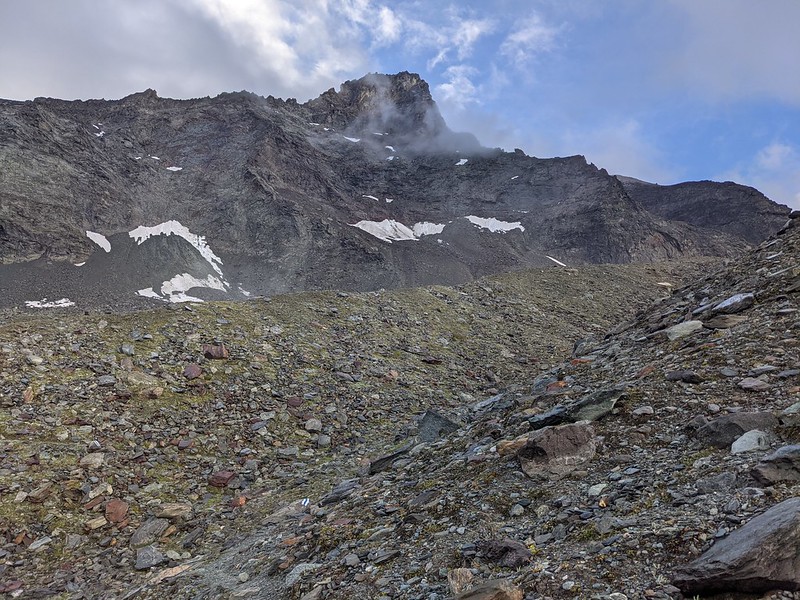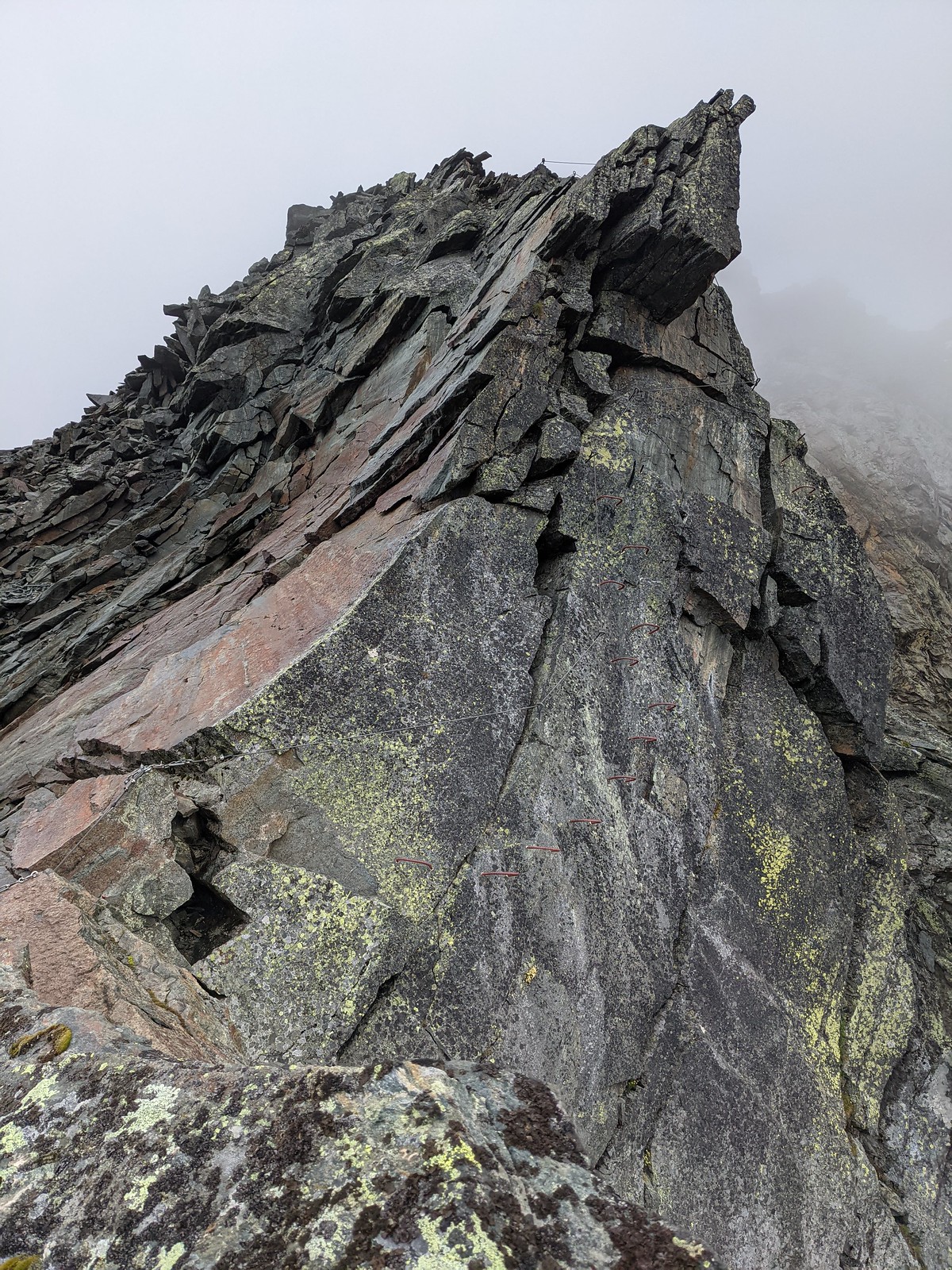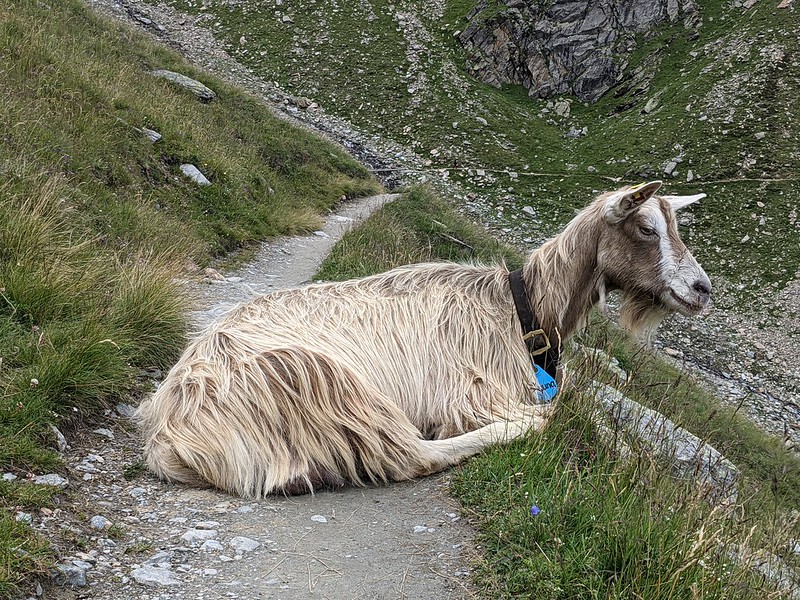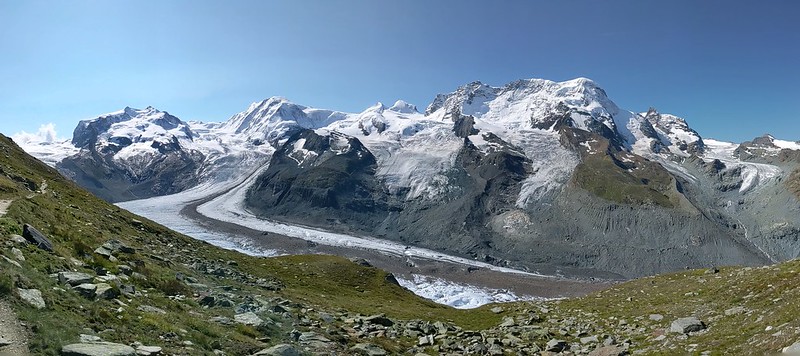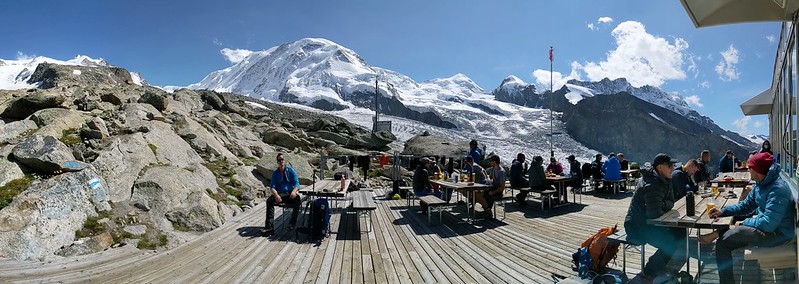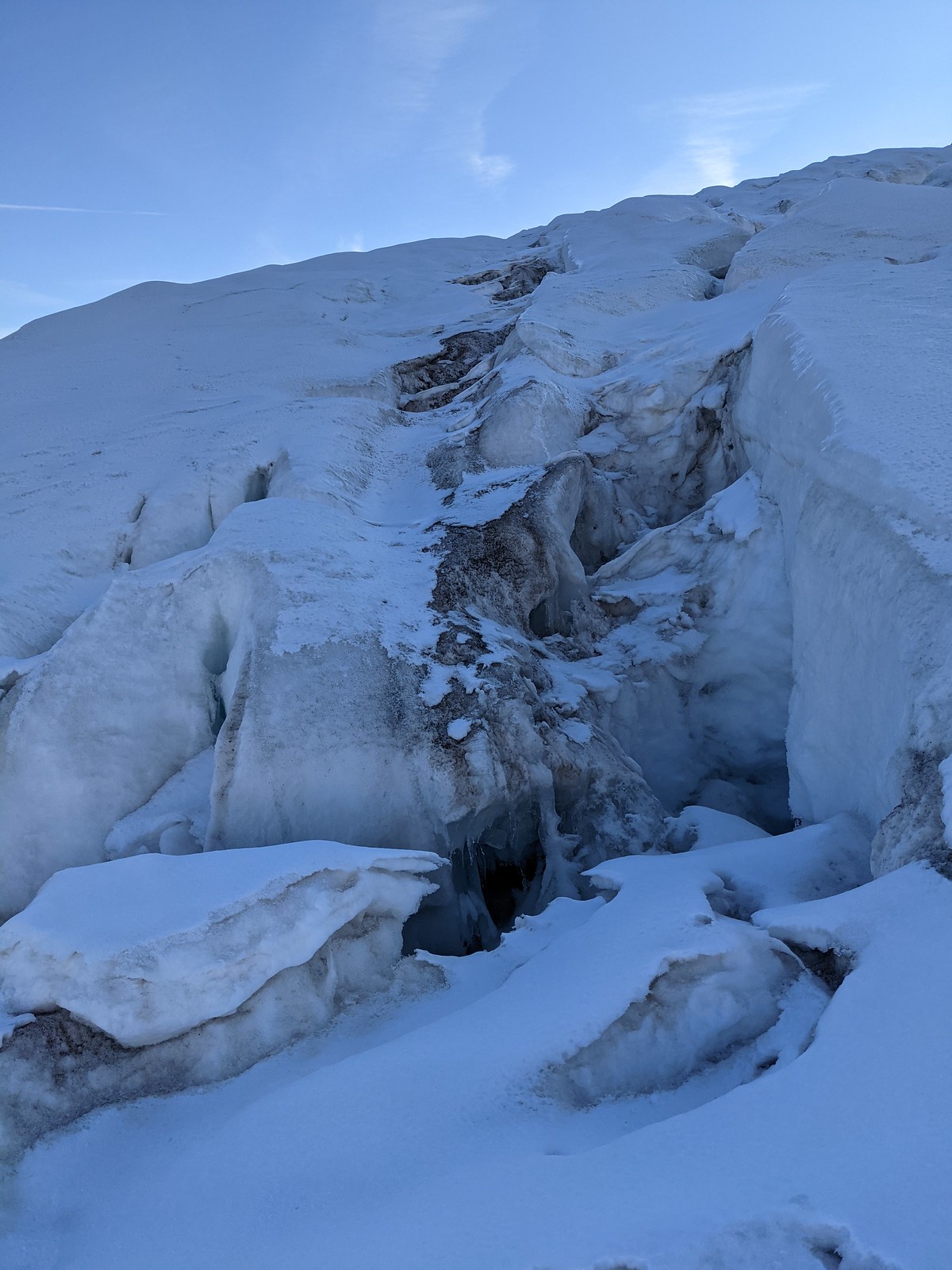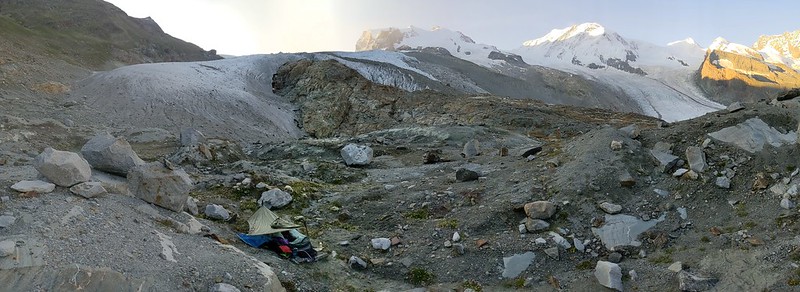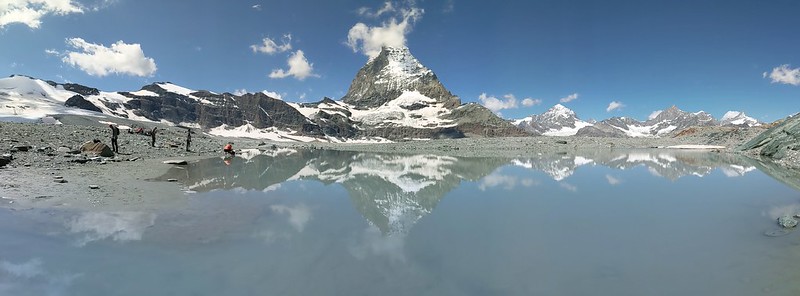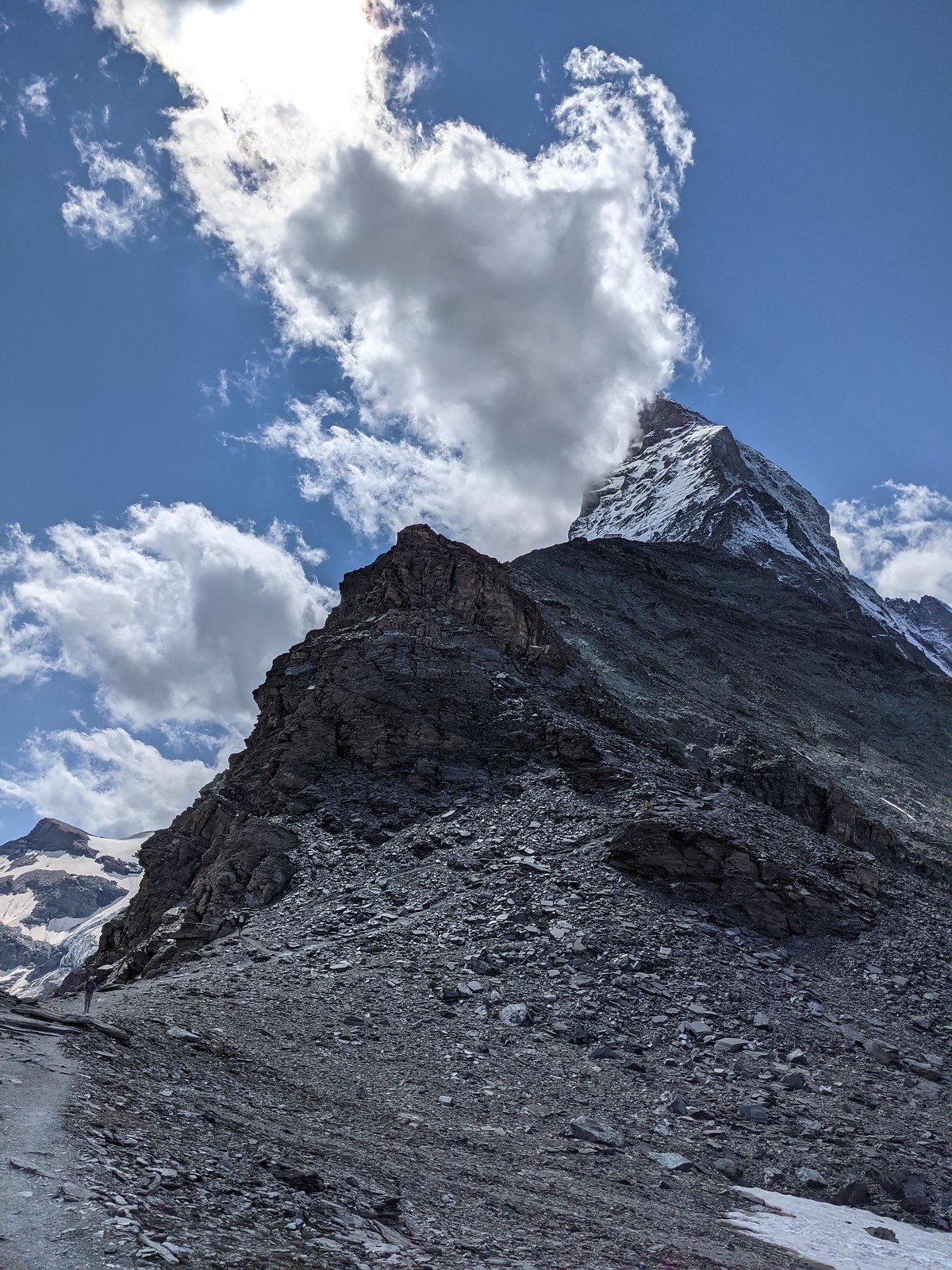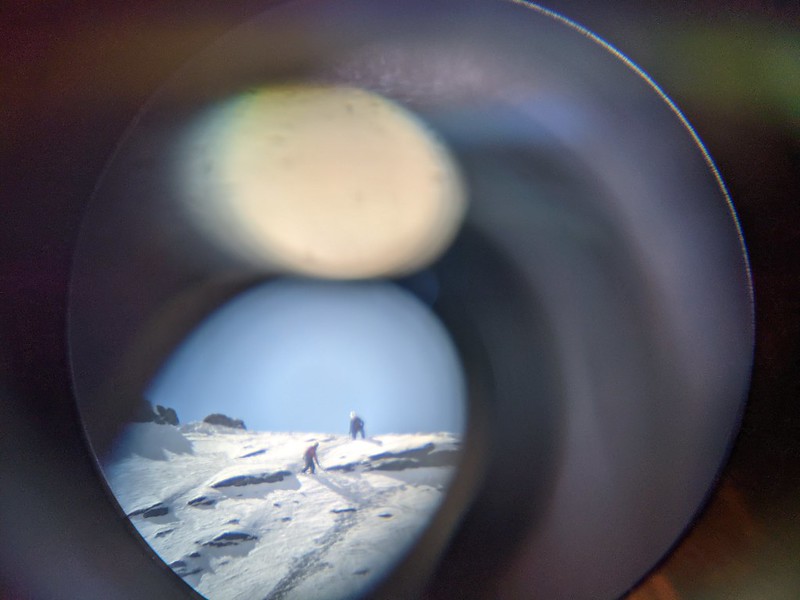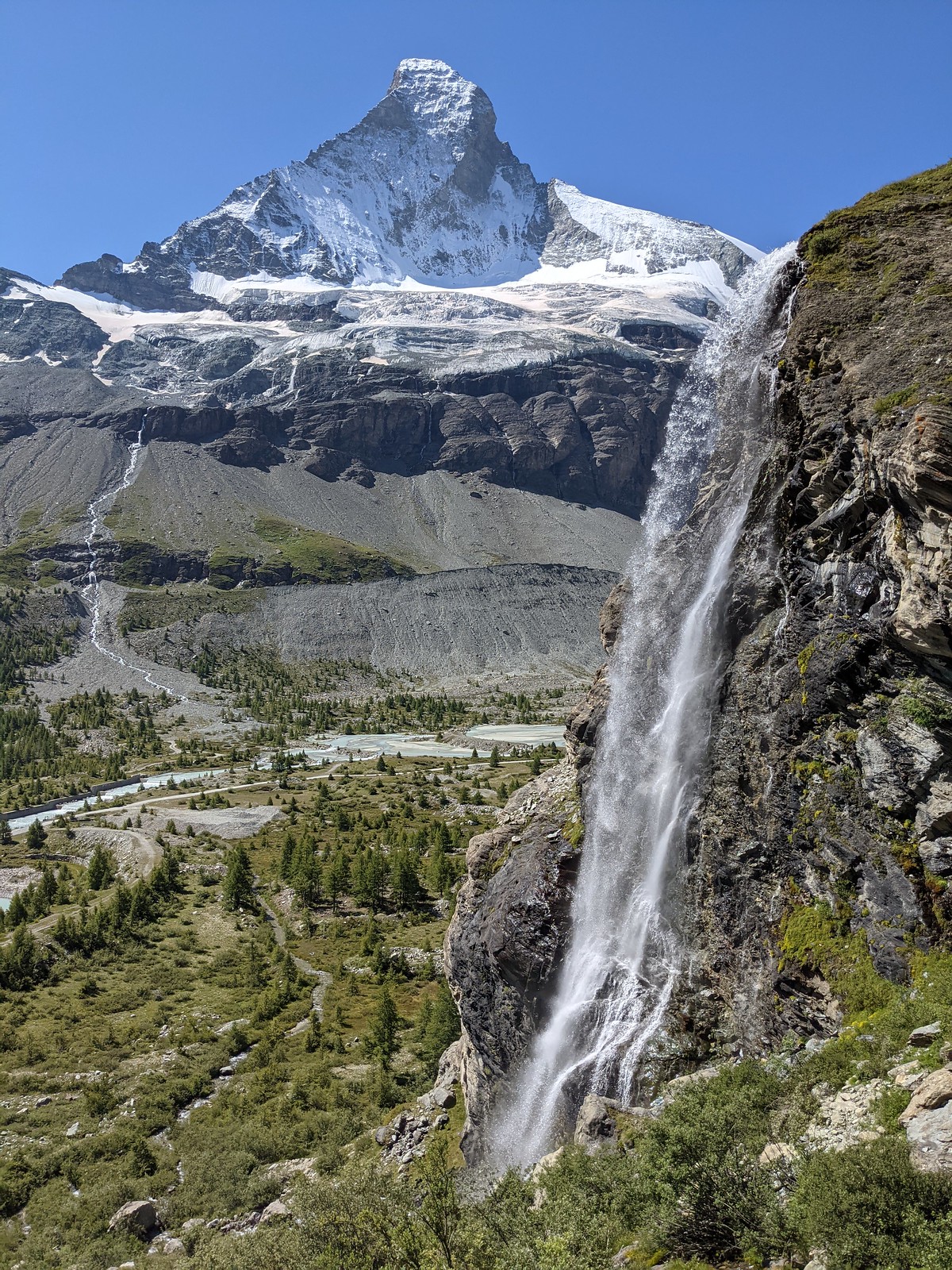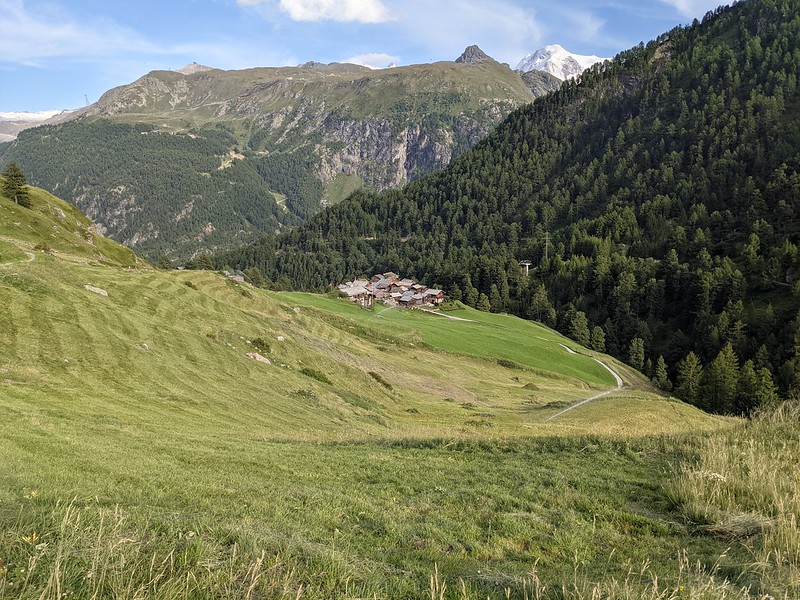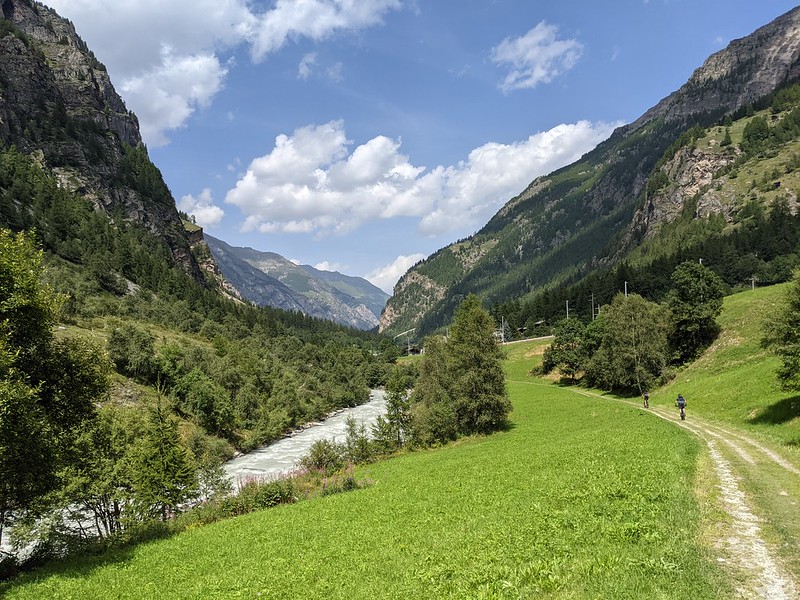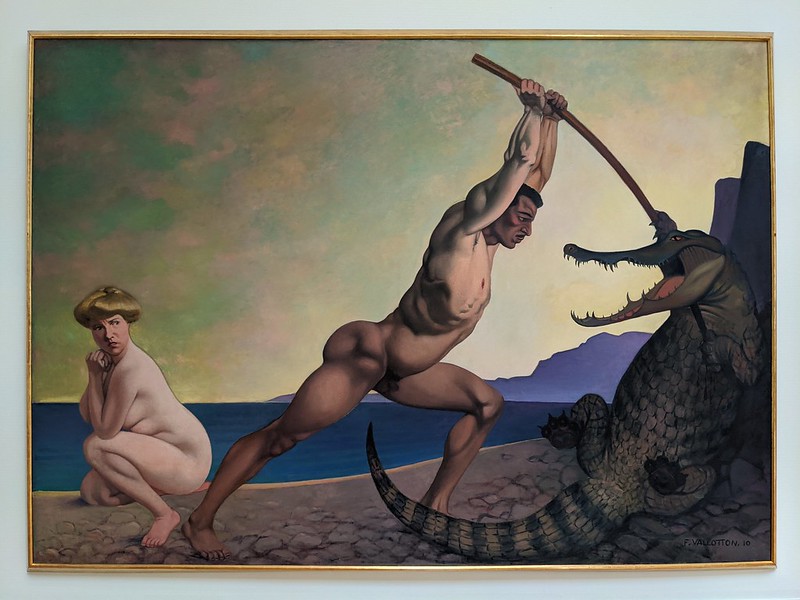 The Wind in the Willows is an old children's book that I have never read before. My copy comes from Joan Procter (given to her "From Granny, aug 18th 1929"), but it has taken me ages to get round to reading it. I liked it.
The Wind in the Willows is an old children's book that I have never read before. My copy comes from Joan Procter (given to her "From Granny, aug 18th 1929"), but it has taken me ages to get round to reading it. I liked it.Wednesday, 22 December 2021
Book review: The Wind in the Willows
 The Wind in the Willows is an old children's book that I have never read before. My copy comes from Joan Procter (given to her "From Granny, aug 18th 1929"), but it has taken me ages to get round to reading it. I liked it.
The Wind in the Willows is an old children's book that I have never read before. My copy comes from Joan Procter (given to her "From Granny, aug 18th 1929"), but it has taken me ages to get round to reading it. I liked it.Saturday, 27 November 2021
Film review: Dune
 This is a review of the "new" Dune film, which we've just watched. Cinematically it is impressive, but largely empty; prefer the book. The new film is only about half the book; we get to the point after the 'thopter crash where they meet the Fremen and stride off towards Sietch Tabr. And that took nearly three hours. Although, to give credit where due, it didn't drag. Watching it on a large screen, and we were right at the front, with all the subsonics, helps.
This is a review of the "new" Dune film, which we've just watched. Cinematically it is impressive, but largely empty; prefer the book. The new film is only about half the book; we get to the point after the 'thopter crash where they meet the Fremen and stride off towards Sietch Tabr. And that took nearly three hours. Although, to give credit where due, it didn't drag. Watching it on a large screen, and we were right at the front, with all the subsonics, helps.If you've read the book you'll realise that most of the important scenes come with commentary by the leading characters, which adds depth and explains what's going on. The film doesn't try to do that, and so loses that depth, and doesn't find any other way to supply it. So, the Bene G's breeding programme gets a mention, but just that; we're told Lady J was told to bear daughters, but just that; if you've read the book these are hooks if you haven't they are meaningless. Some scenes are problematic: Dr Yueh managing to bring down the house shields just about works in the book, but not at all in the film: everything is on such a vast scale that it is impossible to believe one man could do that. Plus disabling all the sensors that would have warned about the f*ck*ng enormous spacehips just overhead. In their efforts to be impressive, we have enormous lovingly-rendered spaceships landing and people walking off them. WTF? Have these people no motorcades? The battle scenes, whilst also lovingly rendered, make no sense: in no universe should people on foot rush at each other with swords, having decended from spaceships. In the book, of course, we know that shields don't let in high-speed items and this helps; the film doesn't manage to convey this well. In the book, when Paul kills Jamis, eventually, it is helpfully explained that the reason he keeps slowing down is this facet of shield-trained-fighting. Having Paul dream of a figure with a bloody knife doesn't convey the across-known-worlds Jihad. And so on.
On a perhaps somewhat pedantic note, but with just a tiny bit of thought it could have been done better: Dune is very very hot in the sun, yes? I've been to places - Greece, Spain - that are like that. If you walk across a courtyard in such a place, you take advantage of every shade. They don't. When Paul wanders across to talk to the palm-tree-waterer, he doesn't stand in the shade of the trees, and neither does the waterer. Little things like that - and people not keeping their mouths shut, despite having nose plugs in - disappoint.
From that, you can tell that I spent quite a bit of the film comparing it to the book, and inevitably finding the book superior - by which I think I mean, the story and images the book conveyed to my mind. But some bits of the film do work, and carry you along, and you can forget the book for a while. The ornithopters are nicely done. Some of the spaceships are kewl. The worms are decent. Backdrops are good.
The lead, Paul, works. The Duke is OK. Lady J isn't: too weak, insufficiently in control; her character sacrificed for Hollywood tropes.
Note: I should add that (per my review) while the book is dead impressive if you're say 16, it doesn't fare so well to an adult.
A few words about the David Lynch 1984 version, which we watched at home recently. Which was also pretty good, though it did drag a bit. I found Sting, as Feyd-Rautha, good (was there even a FR in this one?); Piter was well done too; by contrast the 2021 version doesn't do its characters so well. DL's version tried to convey too much by having characters moon off into the distance, which is kinda what the book did, but it didn't work on film.
On scale
The books and the films differ as to the "scale" of the various households. Hence, as noted above, some things that make sense in the book don't make sense in the films. In the book, Leto's household in Arrakeen is effectively that of a colonial governor; there's a housekeeper, the Shadout; and from inside they can look out onto the road, along which people pass. In the film - certainly the most recent - the scale is vast; driven mostly I think by a desire for dead impressive CGI stuff, with spaceships and buildings dwarfing human scale. And mostly empty inside, apart from a few key characters. Indeed a flaw in the film is that the key characters are not surrounded by a cloud of servants, as they should be.
Thursday, 25 November 2021
Book review: White Queen
For all those who have reviewed this as "I was baffled": yes indeed: this book actually requires you to think, and rewards you if you do.
Tuesday, 23 November 2021
My father's carpet
Oops. Nothing lasts forever, as Roxy Music taught. So, with a heavy heart, and after considering getting it repaired and consulting with Mother, I girded up my loins and threw it into the bin.
Monday, 22 November 2021
Film Review: Time Bandits
 Well. A weird one, as you'd expect from Gilliam. See wiki. Visually rich, as I think they say; indeed some of the scenes - particularly the early one of the approach to the city in the Napoloeonic wars - looked like it had been done as a recreation of a painting; or perhaps not a re-creation: created, as though a painting; with attention to dramatic light and dark.
Well. A weird one, as you'd expect from Gilliam. See wiki. Visually rich, as I think they say; indeed some of the scenes - particularly the early one of the approach to the city in the Napoloeonic wars - looked like it had been done as a recreation of a painting; or perhaps not a re-creation: created, as though a painting; with attention to dramatic light and dark.However, as a film - as entertainment, which it is meant to be - it is flawed; in that it is not funny enough, and not brave enough to be not funny at all. And too often skates over the verges of unfunnyness. So it would perhaps have been better not as a comedy at all, perhaps. Examples? "Pansy" is rather heavy-handed. We're given a brief shot of a lifebuoy with "Titanic" written on it, which is full, but then a moment later it is thrust into our faces, which isn't. Robin Hood. The gratuitous hitting of the poor by one of RH's henchmen. As a cartoon, that would have been fine; with real people - though, obviously, they weren't really hit - it isn't. Indeed the entire thing is really a cartoon.
The minotaur is very good, though.
Book review: Sundiver
 A David Brin potboiler. Of the Uplift Universe; see-also the Brightness Reef trilogy. See-also Goodreads. I'm pretty sure I liked this better the first time around. But his prose is leaden despite his best Ive-been-to-writing-class attempts to add something to it, so shorn of surprises it isn't such fun. My appalling memory means that some surprises remain, but really - apart from the plot, which is best avoided - the book is mainly introducing you to the Uplift Universe and the Wolfling Humans and so on; and without the interest of that being gradually revealed, there isn't much left.
A David Brin potboiler. Of the Uplift Universe; see-also the Brightness Reef trilogy. See-also Goodreads. I'm pretty sure I liked this better the first time around. But his prose is leaden despite his best Ive-been-to-writing-class attempts to add something to it, so shorn of surprises it isn't such fun. My appalling memory means that some surprises remain, but really - apart from the plot, which is best avoided - the book is mainly introducing you to the Uplift Universe and the Wolfling Humans and so on; and without the interest of that being gradually revealed, there isn't much left.Too much is wrong to make the thing worth ripping to shreds, but I think the idea of Culla having SuperZappoLazerVision is the worst part. It isn't physically plausible to have SZLV. I doubt it is plausible to have LV at all, but that would have been a smallish miracle, and all that was really needed for the plot, but oh no they have to be usable as weapons too for the grand finale. Yawn. Keeping them secret for 100 kyr isn't believeable either. And all of this stems from the mere need to not have a machine onboard that could have done it; but GalTech could have got a machine onboard trivially. So it is all very silly indeed. Roll on the desperately self-congratuatory finish and we're done; whew.
Friday, 19 November 2021
Next summer: thoughts and ideas
I'm going to dump stuff I see here, against the happy chance I may be able to use them.
The corners of the Cam
 As told to a visiting cox from Oxford. And for Fairbairns, which means you don't get to see the course beforehand.
As told to a visiting cox from Oxford. And for Fairbairns, which means you don't get to see the course beforehand.Some resources:
* A map of the standard Head Course, from First and Third.
* A map of the Fairbairns course, from Jesus.
* A video of a Robinson VIII rowing the course.
The Cam is wigglier than the Isis. Most coxes, even good ones, will expect their crews to pull round, bowside or strokeside, on Grassy and Ditton and probably First Post (for the standard Head Course). So, expect this, tell your crew to expect it, don't get overenthusiastic and try to avoid it or leave it until too late. Also, don't just tell one side to pull harder, because they can't; or if they can, only at the risk of throwing out their rowing. So, you want one side to pull round, and the other side to back off somewhat. Ideally, to ease the strain of calls, arrange beforehand with your crew that if one side is told to pull round, the other side should just back off, of itself. Also, somewhat controversially, I'd suggest going into corners at 90% effort. Because Fairbairns is a long course (and there is usually no significant stream on the Cam), there is plenty of time to get tired, why not give yourself some margin on the difficult bits. This doesn't apply if you're elite, of course, but if you're elite, why are you reading this?
General: in the town section the river is narrower than you think due to moored boats. On the Reach, beware of shallows if you get too close to the meadow side; you're probably better off on the towpath side. Although there is little stream, you may as well gain what there is by staying in the middle, which has the advantage of avoiding the nasty banks.
The Corners
Elizabeth Way ("the Road Bridge on J's map): or, "the S bend". Not too bad, just watch out for the point when you want to change the rudder over.
Chesterton / Green Dragon: on the map, looks deceptively easy. But is quite sharp, see-also my pic above. You come into it from a relatively narrow stretch of water further constrained by moored narrow boats.
Ditton: most of a right angle. Going upstream, it is very easy to steer too wide, especially with a wind coming down the Reach. Downstream, make sure you don't take it too wide, you don't want to head into the Plough.
Grassy: is most of a right angle. It is easier to steer downstream; going upstream, judging the narrowboats on the apex(es) is difficult.
First Post: not too bad, a total of about 45 degrees, but quite sharp. If you end up going wide, watch out for the overhanging trees and bushes on the far side.
Just before you get to the "Motorway Bridge" (actually the A14 bridge) there is "the outflow" which comes in from the W (towpath) side and can slew the boat around in a somewhat unnerving fashion. Avoid this by being in the middle.
Wednesday, 10 November 2021
Taping the seams
1. The existing seam was peeling away a bit, so a "cross" to seal it seemed best. I didn't want to pick / pull off the existing seam.
2. Showing the roll. That's a lot of tape, and you get two rolls. This coat is not for public display, so I decided to tape the outside, too, albeit a bit more neatly than the inside.
Saturday, 30 October 2021
Film review: Indiana Jones and the Raiders of the Lost Plausibility
Wiki's While [Lucas/Spielberg] had ideas for set pieces and stunts for the film, they hired [a writer] to fill in the narrative gaps between them pretty well explains things. It is two hours long. And towards the end it begins to drag a little, because it is turning into one thing-following-another, and when they finally open the ark I was grateful we'd nearly got there.
Saturday, 23 October 2021
Film review: Eat Drink Man Woman
Sunday, 10 October 2021
Book review: Nemesis
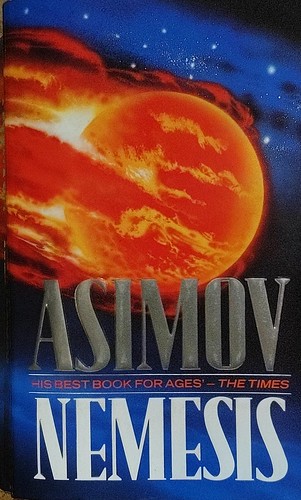 Sci-fi trash from Asimov. Wiki will tell you about it, but not whether it is any good. Goodreads likes it. I read the middle portion until late in the night. But... after that it gets less good.
Sci-fi trash from Asimov. Wiki will tell you about it, but not whether it is any good. Goodreads likes it. I read the middle portion until late in the night. But... after that it gets less good.The underlying story line is reasonable, and mostly reasonably handled, but it is too long and gets rather bogged down.
A pattern I've seen before: the "scientist" characters make wild guesses which the (should) know full well they haven't got the data to back up, and then hold fast to those guesses, pointlessly. They have long book-filling discussions about those guesses that add little to the plot but much to the thickness of the book. Example: did "Rotor" survive the trip out to Nemesis?
Another pattern: space travel is absurdly over-personalised and ad-hoc. Our Strong Female Lead invents FTL travel (well, the hyperspace travel of the Foundation series); and then also leads the engineering to produce a space ship; and then actually travels on the space ship. Just like Werner von Braun did... oh, wait. When the five-person crew heads off they, utterly absurdly, have no plans, have thought through no contingencies, and have no instructions from Earth. Although the SFL is the nominal captain the authority structure is weak because they're all scientists, and yet absurdly that hasn't been thought through either. The people in charge stay in charge throughout decades, because inventing new characters is hard.
The FTL-ish stuff is murky, but I think this is valid too: various groups "leave" the solar system, and people wonder where they're going to. But never ever does the book discuss what direction they're going in. Implicitly, you travel through hyperspace "in the direction you're going" because nav in hyperspace is never mentioned, and yet it never occurs to anyone to just track the fucking things as they leave the solar system to see which way they're pointing. This is such a massive plot hole I think Asimov must have seen it, but because he was unable to fill it he had to hope his readers wouldn't see it.
The other weirdness is the "Captain Scarlet" effect: no-one ever does anything twice, another pattern. So: Rotor leaves, with the hyper-assistance that only they have. But, pretty soon, lots of other people have it. But no-one uses it. Even though it would get you to the stars. Or it could get you automated probes. Absolutely no-one uses it, and the characters mumble some pathetic justification that makes no sense.
Lastly, the characters. Asimov doesn't do these very well, and was better off in the Foundation when things were story-lead. So the long tedious intense scenes where a mother obsesses over losing control of her daughters life, and absolutely no-one says to her "you can't live through you children let her go" are just dull, and after a bit I blipped though them.
Trivia: when first doing FTL, the characters witter about maybe hyperspace is dangerous because of, sort-of, tidal effects. On their small spaceship. But they've forgotten that an 8 km space station has already travelled.
Oh (sorry, one more thing): to be scientifically plausible, Nemesis has to take 5 kyr to get to the solar system. This is such a long time frame that worrying about finding out or doing something in a decade, or a century, would obviously be silly. But that's what all the characters do, and therefore they all sound silly. They invent implausible reasons why it might be necessary to start really soon. Such as: getting 8 billion people off will take a long time. And no-one ever notices that those 8 billion are going to die at the end of their natural lifespace a long time before there is any problem.
And I forgot: there's a bit of racial-politics type stuff in there. Earth is mixed. The space settlements have somehow sorted themselves and tend to be racially uniform (although the book contains no suggestion that it is unfairly so: they are sorted, but no-one says "oh and BTW the blacks are all stuck on Earth). The Earth-type characters tend to think this is bad, and there are suggestions that the Rotor leader is racist. And then towards the end people burble about "will the glactic civ whatever it looks like repeat Earth's mistakes" and so on. But it is a thin layer spread on top of and clearly separable from the story; if he wanted to say anything he needed to try harder.
Aand: our hereoes show a remarkable lack of interest in the planetary scale intelligence they find. It is potentially billions of years old, and yet they ask it no questions. Did anyone else visit? Does it know of any other intelligences? They don't give a toss. Is it human-level, or waaay above human level? They simply don't care. Does it know any interesting new physics or mathematics or moral philosophy? They are not interested. Why not? For a couple of reasons. Mostly, because the PSI is but a plot device, and so our author is not interested in it. But also, because either he has no interesting answers to any of these questions - in which case it is better to pretend they don't exist - or he does, in which case those answers would be more interesting than the rest of the book, which would be embarassing.
Saturday, 9 October 2021
This year's lawnmower
That seemed a reasonable explanation of it not working. I tried cleaning it all out including using the vacuum cleaner but alas it did not spring back to life. So, with some reluctance, I sighed and threw it into the bin and bought a new one from Amazon: Flymo EasiStore 300R Electric Rotary Lawn Mower - 30 cm Cutting Width, 30 Litre Grass Box, Close Edge Cutting, Rear Roller, Manual Height Adjust, Space Saving Storage Features, Lightweight a bargain at £89.99.
Today I got round to using it. After spending 10 minutes assembling it I set to work and all was well... and then it wasn't. It cut out. Just like the old one. Am I cursed? After some experiment it seemed likely that the problem was with my (home build) extension cable, the "far" end so to speak, that gets pulled a lot. So: I cut off a few inches of wire and rebuilt it and... all was well. Hurrah. That probably means the old lawnmower was fine, but at about 9 years old, £10 / year is fair enough. And the new one cuts so much better. Perhaps I should just buy a new blade every year.
Monday, 20 September 2021
Moby Fucking Dick; or, The Wail
 MFD has a lofty place in the annals of books that no-one reads; and having now read it, I can see that is entirely justified. And lest you think I just don't like long books I reply oh no indeed: I rather liked Anathem and LOTR and even Proust. The problem with MFD is the lack of a plot. You might reply "but what could be more exciting than a whaling yarn" and the answer to that is that very little of the book is plot; most of it is regurgitated facts about whaling and other matters, doubtless all "fascinating" in some abstract sense but actually not very fascinating. Wiki offers A contribution to the literature of the American Renaissance, Moby-Dick was published to mixed reviews, was a commercial failure, and was out of print at the time of the author's death in 1891. Its reputation as a "Great American Novel" was established only in the 20th century, after the centennial of its author's birth. William Faulkner said he wished he had written the book himself, and D. H. Lawrence called it "one of the strangest and most wonderful books in the world" and "the greatest book of the sea ever written". That last seems implausible in the face of Conrad. "Call me Ishmael" is good, though.
MFD has a lofty place in the annals of books that no-one reads; and having now read it, I can see that is entirely justified. And lest you think I just don't like long books I reply oh no indeed: I rather liked Anathem and LOTR and even Proust. The problem with MFD is the lack of a plot. You might reply "but what could be more exciting than a whaling yarn" and the answer to that is that very little of the book is plot; most of it is regurgitated facts about whaling and other matters, doubtless all "fascinating" in some abstract sense but actually not very fascinating. Wiki offers A contribution to the literature of the American Renaissance, Moby-Dick was published to mixed reviews, was a commercial failure, and was out of print at the time of the author's death in 1891. Its reputation as a "Great American Novel" was established only in the 20th century, after the centennial of its author's birth. William Faulkner said he wished he had written the book himself, and D. H. Lawrence called it "one of the strangest and most wonderful books in the world" and "the greatest book of the sea ever written". That last seems implausible in the face of Conrad. "Call me Ishmael" is good, though.I feel - but do not have the literary resources to prove - that it might resemble the (flaws in) medaeival literature that Lewis acknowledges: the dullness from padding. And so much of the "detail" does appear to be padding. I also disliked the "voice" of the padding, for which I'll have to give you an example: No good blood in their veins? They have something better than royal blood there. The grandmother of Benjamin Franklin was Mary Morrel; afterwards, by marriage, Mary Folger, one of the old settlers of Nantucket, and the ancestress to a long line of Folgers and harpooneers-all kith and kin to noble Benjamin-this day darting the barbed iron from one side of the world to the other. And so on.
You're also wondering where on Earth the weird name "Moby Dick" came from, and the answer is Mocha Dick.
 There's also a problem of sympathy: doubtless when written whalers were providing a useful service viz whale oil, but I cannot understand their total lack of sympathy for their prey, which - unless I've forgotten, and recall that I started this book many years ago in Mallorca - is not explored in the book, perhaps because the very concept was absent in 1850. I do recall that in one of the POBs Maturin asks a whaleman "do you not feel anything on taking so hugeous a life?" and the answer is a stolid no, and that's it. But that then rather upsets the excitement of the Quest; the book presents Ahab as on some semi-justified quest or perhaps a war against an adversary, the whale; but of course the whale is just hoping Ahab will fuck off and leave him in peace1.
There's also a problem of sympathy: doubtless when written whalers were providing a useful service viz whale oil, but I cannot understand their total lack of sympathy for their prey, which - unless I've forgotten, and recall that I started this book many years ago in Mallorca - is not explored in the book, perhaps because the very concept was absent in 1850. I do recall that in one of the POBs Maturin asks a whaleman "do you not feel anything on taking so hugeous a life?" and the answer is a stolid no, and that's it. But that then rather upsets the excitement of the Quest; the book presents Ahab as on some semi-justified quest or perhaps a war against an adversary, the whale; but of course the whale is just hoping Ahab will fuck off and leave him in peace1.
Notes
1. I know, it isn't really like that, but you see the problem I hope.
Refs
Tuesday, 14 September 2021
Book review: Till we have faces
 Till We Have Faces: A Myth Retold is a 1956 novel by C. S. Lewis. It is a retelling of Cupid and Psyche, based on its telling in a chapter of The Golden Ass of Apuleius, says wiki. It is set in an imaginary city-state of Glome not too far from the Greeklands; Aphrodite is known as Ungit.
Till We Have Faces: A Myth Retold is a 1956 novel by C. S. Lewis. It is a retelling of Cupid and Psyche, based on its telling in a chapter of The Golden Ass of Apuleius, says wiki. It is set in an imaginary city-state of Glome not too far from the Greeklands; Aphrodite is known as Ungit.Book review: The Hobbit
 I find it hard to believe that I haven't reviewed this already... I've read it a few times. But perhaps not recently? Except I found we had a hardback copy, in addition to the paperback I've had forever. I think the hardback came from Mfd; anyway, I re-read it. It is still good; far better than almost anything new, naturally.
I find it hard to believe that I haven't reviewed this already... I've read it a few times. But perhaps not recently? Except I found we had a hardback copy, in addition to the paperback I've had forever. I think the hardback came from Mfd; anyway, I re-read it. It is still good; far better than almost anything new, naturally.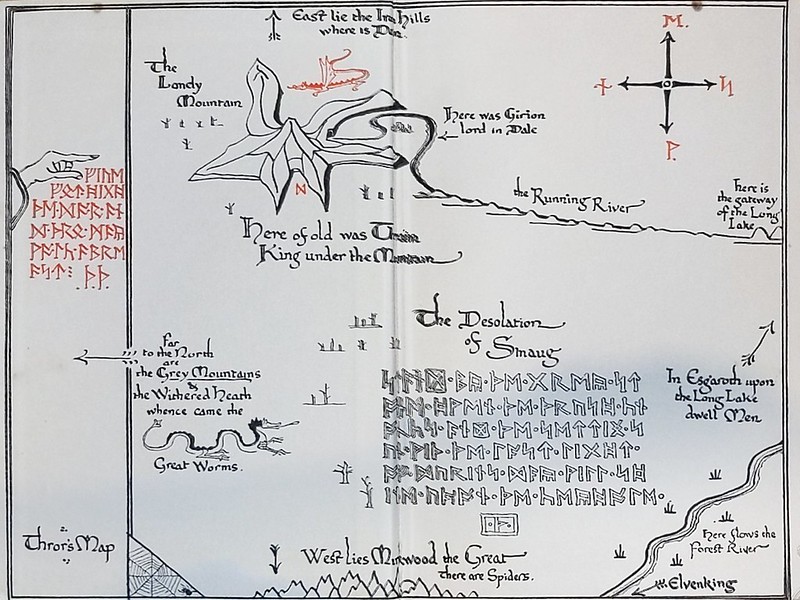
Refs
Thursday, 9 September 2021
Book review: Wherever Seeds May Fall
By Peter Cawdron. Amazon flung this at me as part of Prime on Kindle, so I experimented with reading it. And I will admit I found the first 80-90% of it very good, in a page-turning sort of way, though the prose is not sparkling. Goodreads slobbers all over it, with some exceptions, but I maintain that this is in a long tradition of books where the build up is good, but when the author has to finally deliver on what-the-aliens-actually-are, lacks the imagination to so deliver; see-also Rendezvous with Rama. Unfortunately in this case in his desperation to deliver an ending, our author completely contradicts his earlier pages.
So (spoilers ahead...) all is well until the Giant Alien Spaceship turns up at the Lagrange point and Our Heroes attempt contact. When I say "well", I mean "well with the book"; lots of people have died of course. And in fact I don't quite mean that, because during the flyby somehow the ionisation trail of the GAS has somehow taken out all the world's nukes. This is not, as the characters themselves realise, plausible. Also (as the author later admits, when he allows himself a rebuilt nuke to take out the GAS) the mode of removal would have allowed them to be rebuild really very quickly. And even... it just isn't needed for the plot (though it would have fitted with the non-insane ending we didn't get).
During contact, Our Heroes realise - really rather belatedly - that the ship can't have come from Taurus as it would have taken far far too long. Where is does come from is never decided. They then realise that it is in some sense quasi-organic, although how such a thing could be strong enough to survive the various megatonne fly-throughs is not discussed. Then the alien briefly appears, almost comically all fangs and stuff. I really genuinely at that point thought it would turn out to be some sort of projection tuned to human desires and fears but no: our author has for weird reasons decided to throw in a Scary Alien which Wanted to Eat The World. Then they blow it up and live happily ever after. But! There's a problem: the GAS has gone from directed-by-intelligence to just-instinctive (the SAWWTETW is not intelligent, I think because the author can't bear to think that intelligence would be hostile) and so there is no possibility of it having done the flyby targetting so accurately. This, too, is not discussed. It is also totally unclear where it got its initial velocity from.
What's odd also is the way Our Heroes - well, mostly the Token Female Scientist - go from complete certainty that the GAS is non-hostile to total certainty that it is hostile, with no real evidence for either position. They see a thing with teeth that eats their probe (which pulls in the Orion capsule; I had wondered why the probe needed to be on a tether, the reasons given were not plausible, and the answer turns out to be "so that the probe's tether could pull in the Orion and cause serious but not fatal damage") and instantlly switch to total hostility, without even a token "well it would be a shame to just nuke this interesting new life form, couldn't we at least try to take some pix first?" which any genuine Sci would have said).
My best theory to explain this is that the author has inexplicably mashed together two different books, one a start and one an end, that he happened to have lying around.
Friday, 27 August 2021
The Design and Evolution of C++
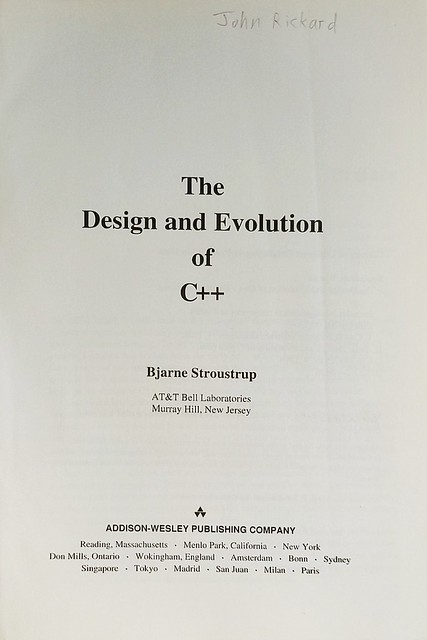 Reminder to self: these "reviews" are as much a record of what I've read as any attempt at proper reviews.
Reminder to self: these "reviews" are as much a record of what I've read as any attempt at proper reviews.The Design and Evolution of C++ by Bjarne "Barney" Shoustrup is very much what it says it is. As such, it isn't a good way to learn C++ if you know C, which is my position, but hey ho so it goes: it was what I had. Now I look the inner page says "John Rickard" in pencil, which will mean something to a few people.
It is a good book on the evolution of the language from someone who ought to know. It also shows something of what you need to be like in order to "own" a language: BS clearly has strong opinions and in many cases was clearly right. I particularly enjoyed Cato the Elder's contention that, furthermore, he was of the opinion that Cpp must be destroyed, even if I don't share it.
Thursday, 26 August 2021
Book review: Colonialism, the Golden Years
 Memoirs, by J A Golding. Bought from Oxfam a few months back. There's a decent review at britishempire.co.uk with which I largely agree.
Memoirs, by J A Golding. Bought from Oxfam a few months back. There's a decent review at britishempire.co.uk with which I largely agree.Tuesday, 24 August 2021
Book review: Labyrinths
 Labyrinths, as wiki will tell you, is a collection of short stories and essays by the writer Jorge Luis Borges. They are... refined. They remind me of the aesthetes of Garwiy in Jack Vance, perhaps because I know no real ones... or do I?
Labyrinths, as wiki will tell you, is a collection of short stories and essays by the writer Jorge Luis Borges. They are... refined. They remind me of the aesthetes of Garwiy in Jack Vance, perhaps because I know no real ones... or do I?Overall: one story or two is fine; if you read them as items in a literary magazine, you would enjoy them. But somehow a book-length collection is less fine. The patterns begin to emerge, his technique becomes less subtle and more intrusive, they are too similar; and the sheer pointlessness of it all becomes unavoidable.
Individual notes:
With regard to Pierre Menard, Author of the Quixote: by weird co-incidence, I come across Chinese Don Quixote is translated into Spanish after 100 years; Lin Shu’s forgotten 1922 text, The Story of the Enchanted Knight – with a less deluded Don Quixote – in edition for China and Spain. This - coupled with the Chinese links elsewhere - is interesting; did Borges know of, and take inspiration from, this? We may never know.
Tlön, Uqbar, Orbis Tertius: there is a flaw in this, that our modern era reveals, with it's widespread availability of information: there exists Ukbarā, which was a medieval city on the left bank of the Tigris between Samarra and Baghdad. Presumably this was sufficiently obscure that it was omitted from the Anglo-American Encyclopedia but nonetheless the desperate search, which the story describes, for any trace of Uqbar or variants thereof should have turned it up.
The Circular Ruins: consider Gene Wolfe's the story of the young man fleshed from dreams; Wolfe has certainly read Borges.
The Library of Babel: the idea is of an infinite "library" (series of interconnected rooms) containing all book-length permutations of a given 25-element alphabet. He does realise that such a set is not infinite, just very large; and suggests that the library is cyclic rather than truely infinite. What I think he doesn't explicitly either say or realise, is that any such collection, whilst it would contain all wisdom, would also contain (as well as much that doesn't even make words) all drivel; and without a way to tell one from another would be worthless. It turns out that Quine riffs off this, adding the extension that ideas too long for any one book can simply be found by appending a second book. He justifies this with In seeking the truth we have no way of knowing which volume to pick up nor which to follow it with, but it is all right there but he is wrong: the key element missing is the organisation; the link from book to sequel. To see this more clearly, imagine the books are one character long, and there are only 25 of them, and "all you need to do" is follow from one to the next in sequence. There's a quasi-similarity here to genetics: human and mice genomes are near-identical, yet humans and mice are easy to distinguish.
Wednesday, 18 August 2021
Switzerland 2021
 I had three weeks in between changing jobs, carefully arranged after bumps. I choose Switzerland because I suddenly realised I'd never been near Monte Rosa - aka Dufourspitze - and because they were rather more sane about Covid than France. The intention was to recce the Monte Rosa group, and possibly climb some stuff depending. In the end it was mostly recce.
I had three weeks in between changing jobs, carefully arranged after bumps. I choose Switzerland because I suddenly realised I'd never been near Monte Rosa - aka Dufourspitze - and because they were rather more sane about Covid than France. The intention was to recce the Monte Rosa group, and possibly climb some stuff depending. In the end it was mostly recce.Part 1: Saas Fee


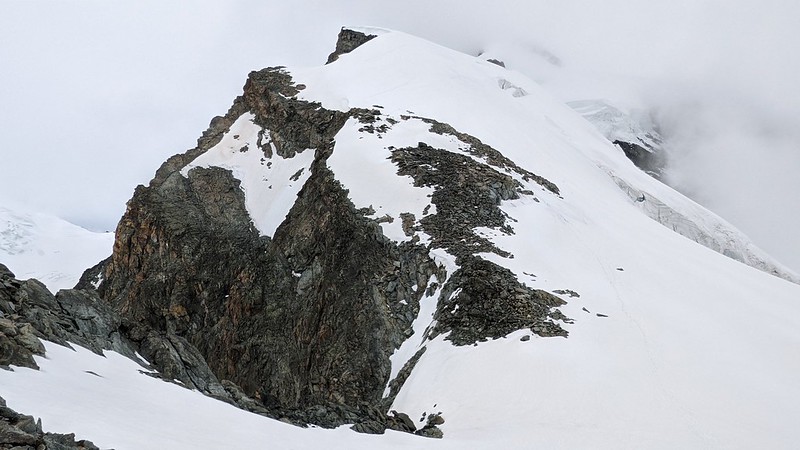




 Sat 31st: another lie in till 6:30. Outside grey: this will be a rest day, in general & for L knee. Finished 3M y'day: pulls itself together in the end but it is odd how the chief-villain role shifts to Milady. Also odd that she never complains to Athos that he hung her for no reason.
Sat 31st: another lie in till 6:30. Outside grey: this will be a rest day, in general & for L knee. Finished 3M y'day: pulls itself together in the end but it is odd how the chief-villain role shifts to Milady. Also odd that she never complains to Athos that he hung her for no reason. [We now switch to doc Switzerland part two]
[We now switch to doc Switzerland part two]








